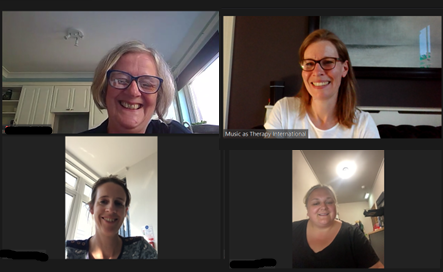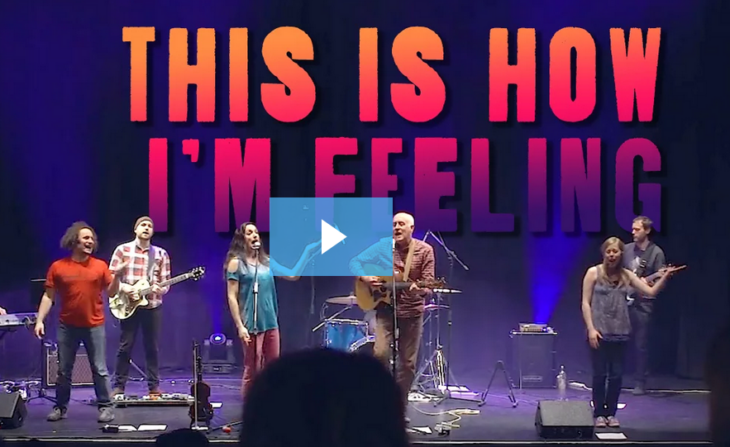Interactive Music-Making Summer CPD Event
United Kingdom
- Children
- Disability
- Interactive Music-Making
- Activities

This week, three interactive music-makers joined Alexia Quin to discuss their interactive music-making practice at this term’s CPD event, at the end of busy, hot working days.
Whether sharing resources and ideas or seeking inspiration to set up new groups, it was great to draw on each other’s collective experience and really focus on the role interactive music-making can play for pre-schoolers and older children with additional needs.
Among topics discussed was how one might adapt aims or activities to support the development of children’s social skills. You might start by hoping a child will simply participate within a musical activity. But once they are confident to join in, what next? Perhaps a layer of instruction or structure to promote turn-taking?
Carolyn shared her creative interpretation of Pass the Parcel, where she puts an object linked to a song or musical instrument inside a drawstring bag, then places this inside another bag with another instrument or object. The layers are built up this way until there is a parcel which can be passed between group members, with each child given the opportunity to remove a layer and collect an item for use together in a group activity.
And once your children are able to wait for their turn as you move an activity around the group, there is scope to offer turns less predictably, demanding a little more focus and impulse control from the children as they wait, vigilant, anticipating their turn could come at any time!
Clare highlighted how perhaps once children have grasped the idea of waiting for and taking a turn, the next skill to promote is their awareness of what other children do during their opportunities to play. Can they watch or listen during someone else’s turn? A song can help to reinforce this, “It’s Amy’s turn, it’s Amy’s turn, Joshua is watching Amy play.” It might be that an initial step is needed simply to raise awareness among the children of themselves and others. Again, sung narration can help with this: “It’s Amy’s turn to play the drum, can we listen to Amy play? Joshua is jumping, Fernando is wriggling, let’s listen to Amy play!”
With greater awareness of self and others, an understanding of turn-taking and more focussed listening and attention skills, there is then scope to explore collaboration and leadership with young children. When Amy plays, can everyone play together? And when Amy stops, can we stop playing too?
Of course, all such ideas have to be adapted to the strengths and needs of the children participating in an interactive music-making session and we reflected on how valuable it can be to keep Carl Rogers’s Unconditional Positive Regard in mind. You might have an activity prepared, but what if a child responds in a way that wasn’t in your plan?! If we can truly accept however the children wish to contribute – within safe parameters, of course – and be open to adapting our activity in response to their contributions, we can uncover meaningful new ways to engage our children. And in doing so, we can draw on their creativity to shape our activities and develop their confidence in themselves and in others.

One final resource we looked at together was the song “This is how I’m feeling” written and performed by the Scottish charity Fischy Music, which creates songs to nurture positive mental health in children by helping them express and manage a range of emotions. It was great to be reminded how effectively body language, facial expression and the speed and intensity of our singing can all reflect different emotional states. Using this in response to what the children in our interactive music-making groups tell us or show us about how they are feeling can be such a valuable way to connect and provide flexible support for young children during a range of emotional experiences.
Further Resources
Our thanks to Clare for sharing the following resources, prompted by our discussions at the CPD event, which she has found helpful to use or adapt in her own practice:
Nancy Music – A collection of free, downloadable songs and activities for singing with children.
Sing Up – Free online resources providing school and teachers with singing and music-making activities.
The Voices Foundation – Resources to guide singing activities with children of all ages.
Out of the Ark – A bank of free-to-access songs and singing activities for early years through to primary aged children.
Singing Sherlock – A paid resource including songs, games and singing activities for children up to 7 yrs.
